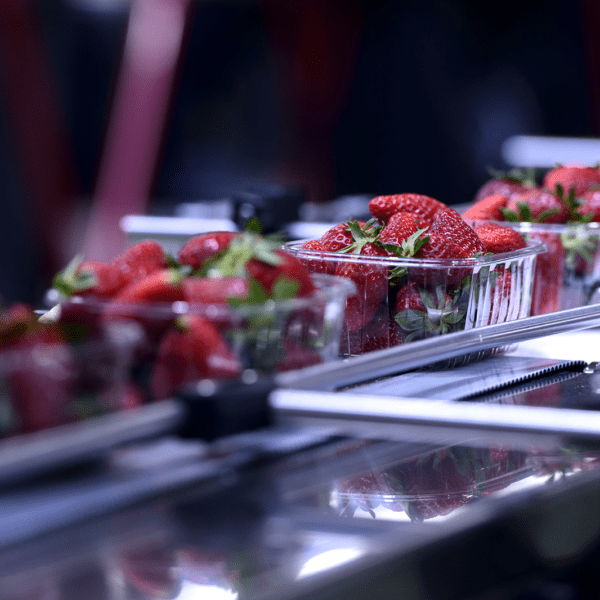Will Sustainability Transform the Fast-Food Industry?
Something curious is happening in seven fast food restaurants between San Diego and Los Angeles. Rather, something curious isn't happening: no meat is being grilled or served.


Plant Power started off as a haven for people who want a burger, but maybe had reason to rethink their consumption of animal products, Plant Power co-founder Zach Vouga told Thrillist in 2018. Plant Power launched its first location in 2017, and its eighth permanent location (they have a food truck, too) is opening soon in Sacramento.
Such offerings represent a big change for the fast-food industry. The Big Mac, after all, was introduced in 1968, when the Filet-o-Fish was already on the menu and triple-thick milkshakes and fries had been staples for nearly 20 years. But a paradigm shift is underway in fast food. Not only are small, sustainability-minded fast-food joints like Plant Power emerging, but the big names in the industry—McDonald’s, Taco Bell, Burger King, and more—are beginning to reimagine their operations and offerings to reduce their environmental footprints and cater to a new generation of sustainability-minded diners.
“Fast food restaurants have major reach to audiences across the globe, so we all have the opportunity and responsibility to leave a lighter footprint on the communities around us,” says a Taco Bell spokesperson.
Here are some ways—and reasons why—the fast food industry is moving toward sustainability.
Confronting a Big Mac-Sized Footprint
Like so many other industries, fast food, known as the quick service restaurant, or QSR, industry, the imperative to embrace sustainability came from market forces. In 2019, a $6.5 trillion investor coalition led by sustainability organizations Ceres and the FAIRR Initiative began a pressure campaign on QSR brands managing more than 120,000 restaurants worldwide to enact meaningful climate policies, targets, and disclosures.
The motivation behind the campaign was clear: Meat and dairy livestock are responsible for nearly 15% of all global greenhouse gas emissions. And QSRs serve 6.4 billion beef burgers a year. With everything packaged to-go, the waste situation also requires addressing. Food and packaging waste makes up about 45% of all materials in U.S. landfills.
The campaign was an effective approach. FAIRR called 2021 a “breakthrough year“: Their investor coalition grew to those representing $11 trillion, and five of six targeted brands had set or committed to setting science-based targets (SBTs) for emissions reductions.
Fast Food Sustainability Commitments
Many consumers will have noticed plant-based burgers appearing on many QSR menus over the past few years, thanks to partnerships with companies like Impossible Foods and Beyond Meat. But some of the restaurants’ more meaningful initiatives (vegetarian appetites notwithstanding) are those happening behind the scenes, some of which include:
- Yum! Brands, owner of KFC, Pizza Hut, and Taco Bell, announced plans to decrease its greenhouse gas emissions by 46% by 2030 and achieve net-zero emissions by 2050. The brands have also committed to various initiatives around green buildings, renewable energy, and sustainable packaging.
- McDonald’s pledged to reduce emissions by 36% by 2030. The global brand says this commitment is equivalent to removing 32 million passenger cars from roads for a year. They also plan to source 100% of guest packaging from renewable, recycled, or certified sources by 2025—and were 78% of the way there as of 2020.
- Starbucks, an industry leader in the sustainability space, pledged a 50% reduction in emissions, to conserve or replenish 50% of water withdrawal, and a 50% reduction in waste by 2030.
Changes Already Underway
Though Starbucks sparked controversy with its 2018 “straw ban,” the concept now seems downright commonplace as QSRs across the US embrace packaging and product changes to enable their sustainability plans. Recyclable and reusable cups, recycling bins, and reduced packaging are becoming the norm in fast food. And, as noted, plant-based meat options are also exploding, with these vegetarian burger options now appearing on dozens of national chain restaurant menus.
At Taco Bell, packaging is becoming increasingly recyclable, compostable, or reusable, as the brand aims for a 2025 target for all guest packaging to fit that bill. It’s also taking aim at a very QSR-specific packaging item: the sauce packet. Taco Bell customers use 8.2 billion sauce packets in the U.S. each year, but to date, there’s been no way to recycle the flexible film sleeves. The hot sauce giant aims to fix that through a partnership with TerraCycle, the environmental waste management company.
Taco Bell’s aim isn’t just for the anticipated recycling innovation to help it reach its own environmental goals, but to be leveraged throughout the industry. A spokesperson called the partnership “an important step, but not the final step, in identifying viable global solutions quickly and efficiently.”
Work Still to Be Done
The QSR industry has gone from commitment to action on sustainability in the last few years. However, given the impact of the massive industry, valued at $257.19 billion in 2019, industry watchers say there’s still work to be done. For example, even while applauding the industry’s climate targets in 2021, FAIRR declared QSRs to be “weak on water” and called them out on climate-related disclosures.
As consumer demand for sustainability continues to increase, it’s likely that fast food diners will begin watching the industry closely. When 2025 and 2030 pledges start becoming due, it will become clear whether or not the giant QSR industry has made good on its commitment to tackling its equally giant environmental footprint.

